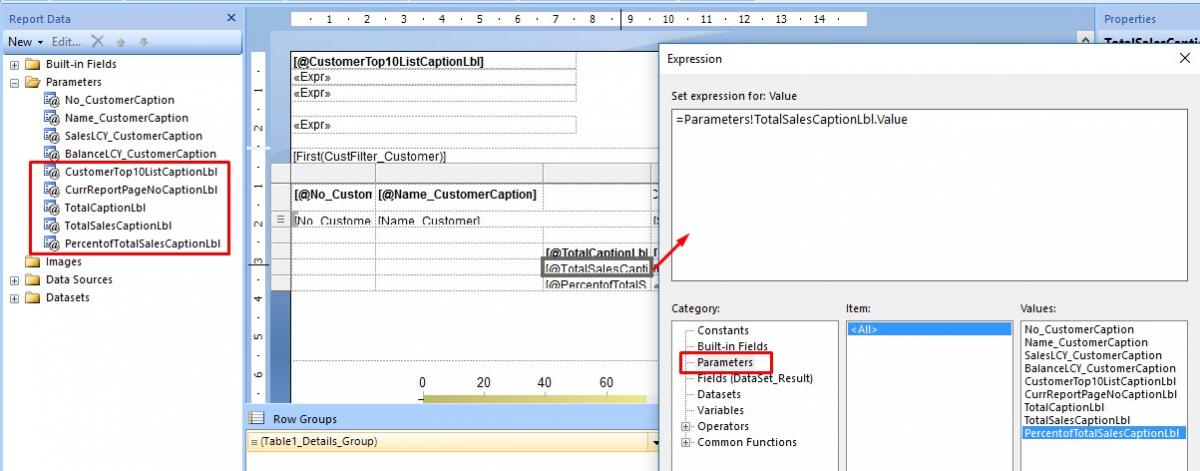Increase Report Performance in Microsoft Dynamics NAV

RDLC reports can have performance issues occassionally. Microsoft is aware, and has been enhancing report performance in every release since this became an issue. In this blog, I will explain how you can use a small feature in RDLC reports called “labels” to optimize performance.
RDLC report performance depends directly on how optimized the Dynamics NAV dataset is. With Labels, we can reduce the size of the dataset, which in-turn increases the performance of the report.
Report data have two components: Captions and Values. Captions can further be classified into three groups:
- Table Field Captions: These are the captions used when one selects “Include Caption” in the Report Dataset Designer.
- Captions generated at run time: These are the captions generated when a report is executed.
- Fixed Text: These are things like the Report Name, or Field Captions, all of which we can define under Global Text Constants.
Figure 1 – Dynamics NAV Report Dataset Designer on Report 111, the Customer Top 10 List
Text Constants (with fixed values) are required to be added in the dataset, and that will increase the size of dataset.
Figure 2 – Dynamics NAV Dataset for Report 111, Customer Top 10 List
As we can see, that last 05 Dataset field value is not changing for any record when we run the report.
Steps to Use Labels
Open the Labels window from ‘View Action’ and select Labels.
Move all fixed text from Text Constants to Labels.
Figure 3 – Move Global Text Constants with Fixed Text to Labels
You can update the Report Layout and Change Expressions from Dataset Fields to Parameters.
All Table Field Captions and Labels are available as parameters in Layout.
Figure 4 – Update Layout Instead of Fields Select to Parameters
This is how it affects the Report Dataset:
Figure 5 – Updated Report Dataset in Dynamics NAV Report 111, Customer Top 10 List
When using Labels and Table Field Captions, the dataset size will be reduced, and performance will increase. If you have any questions about this function or other Dynamics NAV questions for any version, contact ArcherPoint.
Read more “How To” blogs from ArcherPoint for practical advice on using Microsoft Dynamics NAV.
If you are interested in NAV development, check out our collection of NAV Development Blogs.
Trending Posts
Stay Informed
Choose Your Preferences
"*required" indicates required fields




